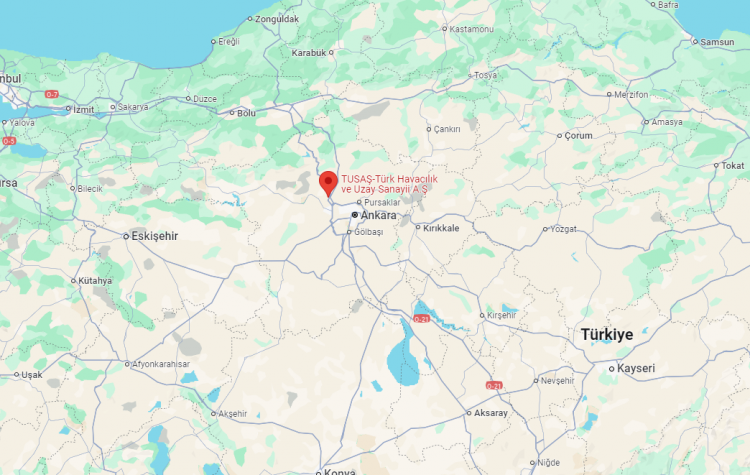A deadly attack on the Turkish Aerospace Industries (TUSAS) headquarters near Ankara on Wednesday left four people dead and 14 others injured, according to Turkish officials. The government swiftly labeled the incident a terrorist attack, although no group has yet claimed responsibility for the violence. The assault comes amid rising concerns about internal security and potential militant activity in the region.
Interior Minister Ali Yerlikaya confirmed the deaths and injuries, adding that three of the wounded were in critical condition. The attackers, a man and a woman, were both killed during the confrontation. Yerlikaya stated, "Two terrorists were neutralized in the terror attack on the TUSAS Ankara Kahramankazan site. Sadly, we have three martyrs and 14 wounded in the attack." He further condemned the act and vowed that Turkey's fight against terrorism would continue "until the last terrorist is neutralized."
Witnesses reported hearing gunfire and explosions at the TUSAS site, where employees were evacuated and transported to shelters. Footage broadcast by local media showed heavily armed assailants entering the aerospace facility, carrying backpacks and assault rifles. Video also captured the moment an explosion rocked the site, followed by gunfire in the parking lot. Ambulances and helicopters arrived at the scene as security forces responded.
TUSAS is Turkey's largest aerospace manufacturer, responsible for producing combat and civilian helicopters, training aircraft, and the country's first indigenous fighter jet, KAAN. It is owned by the Turkish Armed Forces Foundation and the government and employs more than 10,000 people.
Though no group has claimed responsibility, Turkish Defense Minister Yasar Guler hinted that the attack could be linked to the Kurdistan Workers' Party (PKK), a group classified as a terrorist organization by Turkey, the United States, and the European Union. Guler remarked, "We punish the dishonorable PKK members as they deserve over and over again, but they never seem to learn." However, authorities have not confirmed the attackers' identities or affiliations, and the investigation remains ongoing.
Turkish President Recep Tayyip Erdogan, attending a BRICS summit in Kazan, Russia, alongside Russian President Vladimir Putin, condemned the attack. In a post on social media, Erdogan described it as a "vile attack" targeting Turkey's national defense and survival. He expressed gratitude to Putin for his condolences and assured the nation that Turkey would continue to stand strong in the face of terrorism.
The attack has sparked both domestic and international reactions. NATO Secretary General Mark Rutte condemned the violence, stating that the military alliance stands with its ally Turkey. The U.S. embassy in Turkey also strongly denounced the attack, offering its support to Turkey through a social media post.
The incident has unsettled a country that has not seen such high-profile attacks in recent years. Aslı Aydıntaşbaş, an expert on Turkish affairs, told CNN that this attack is "going to raise a lot of questions and suspicions in Turkey about what the motivations are and who could be behind it." The timing of the attack has been particularly alarming, coming as the Turkish government reportedly considers peace talks with the PKK. Aydıntaşbaş pointed out that this attack could complicate those efforts and reignite tensions with Kurdish militants.
The attack also raises concerns about the security of key national assets. TUSAS is a major defense contractor and a symbol of Turkey's technological and military advancements. As Ragip Soylu, Turkey bureau chief for Middle East Eye, noted, "This is one of the biggest, largest defense companies in the country. It's producing armed drones and fighter jets." The fact that such a critical site was targeted has led to widespread speculation about the attackers' motives and the potential implications for Turkey's defense industry.
Investigations are underway, with prosecutors launching an inquiry into the attack. The Turkish government's Directorate of Communications Center for Countering Disinformation urged citizens to rely only on official statements and avoid spreading unverified claims, warning that misinformation could exacerbate tensions.




